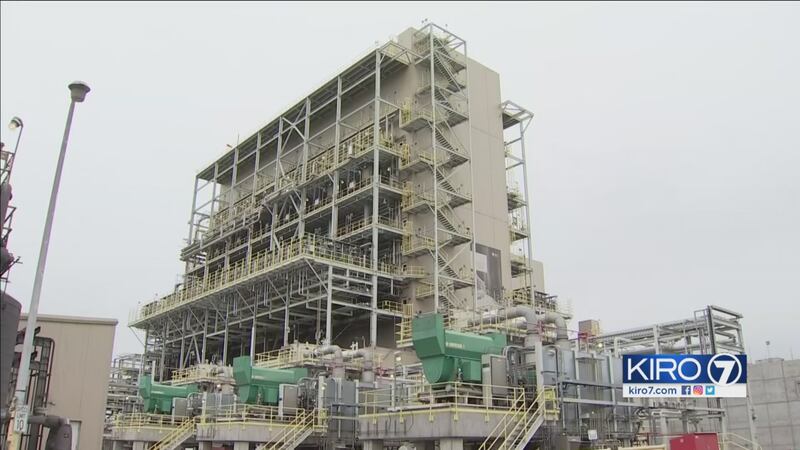A major employer in Moses Lake is stopping production of silicon used in solar panels and more than 100 workers could be laid off in a few weeks.
REC Silicon executives say they've been slowing production since China imposed a 57 percent tariff on their product in 2013 and have been running the plant at just 25 percent capacity for several months.
This week, the plant will shut down production.
Scroll down to continue reading
More news from KIRO 7
- Pierce County man used waterboarding-like technique to punish 7-year-old, police said
- Washington ranks as best state in the country, according to new report
- 4 dead, 10 injured after mid-air collision between float planes in Alaska
- Kent home riddled with bullets, police searching for shooter
- Do you have an investigative story tip? Send us an email at investigate@kiro7.com
"It's extremely difficult to think of not being able to operate, not being able to run and see people not have jobs here because we don't get to compete fairly on the market," said Jeff Johnson, REC Silicon's vice president for operations in Moses Lake.
The market for the granular silicon made at the plant is China, which increasingly controls the solar panel supply chain.
Before the tariffs, the facility employed close to 500 people.
Now, just 179 workers are left.
After production stops, workers will stay on another six weeks in hopes of a trade deal that allows polysilicon sales to China.
"The trade negotiations are heavy and ongoing and we're hoping for a favorable outcome," Johnson said.
Without a deal, more than 100 people will be laid off.
Company executives credit the Trump administration for playing hardball with China, saying the prohibitive tariffs need to end.
"We need a resolution here, we need to have access to the market," Johnson said.
With wages and benefits, jobs at the plant pay an average of $100,000 a year.
Replacing an income like that would be difficult in Moses Lake, and if there are more layoffs, workers could end up leaving town.
Company executives say they would maintain the plant so that it could be restarted if the market reopens.
Cox Media Group








